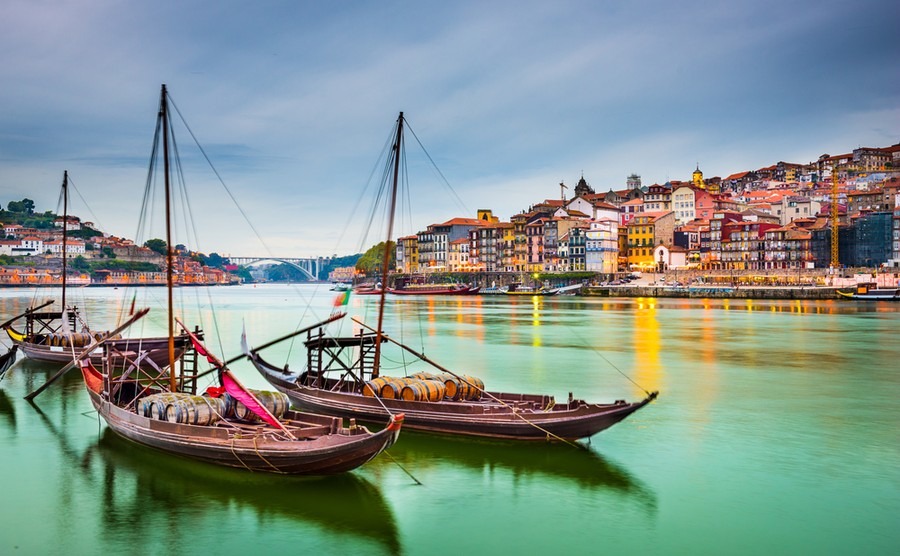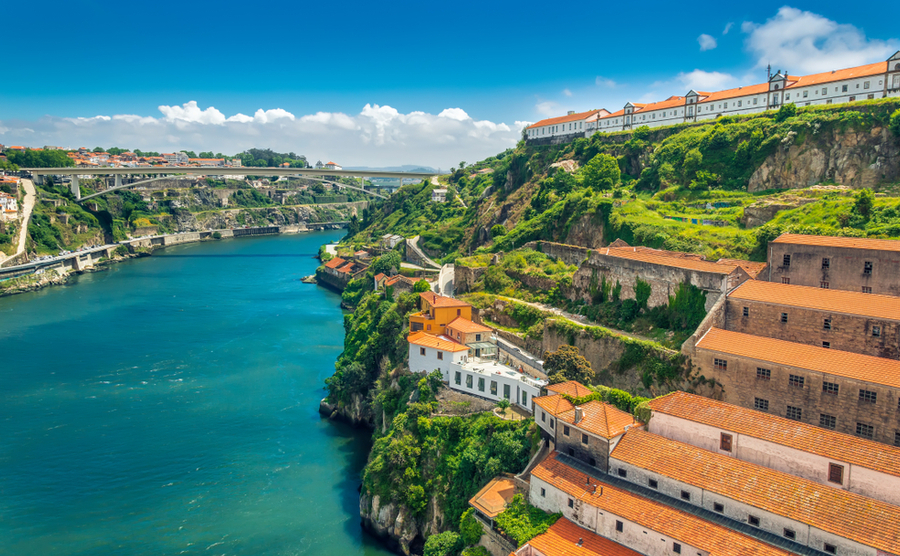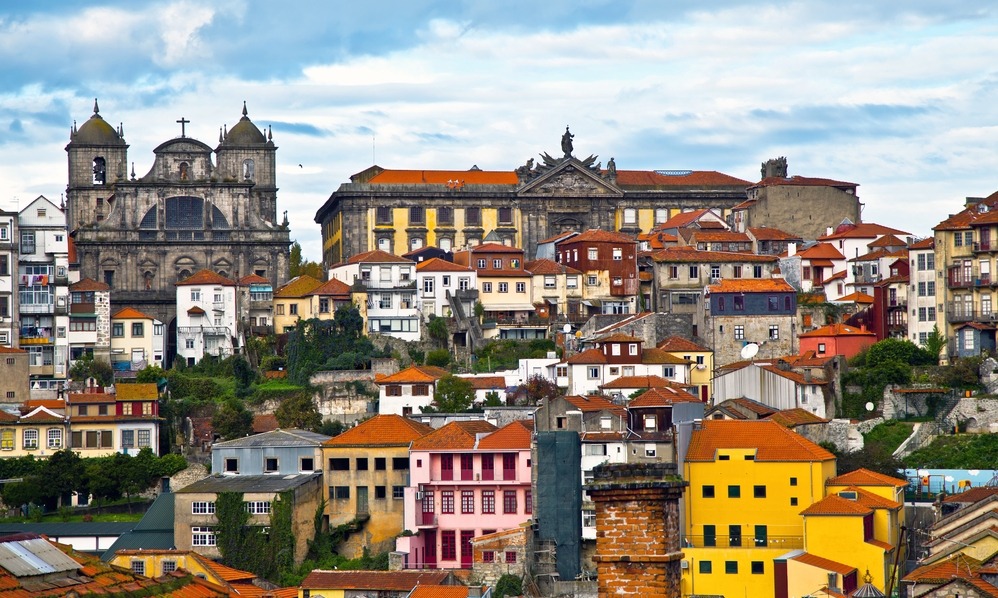Are you considering a life in Porto? This guide will hopefully provide you with the information you need to make a decision about moving to Portugal’s second largest city.
There’s a popular saying in Portugal that goes, “Braga reza, o Porto trabalha, Coimbra estuda e Lisboa goza.” Loosely translated, this means “Braga prays, Porto works, Coimbra studies and Lisbon plays.” This light-hearted example of regional rivalry comes in many variations. All tend to include the “Porto works” part!
In reality, Portugal’s second largest city has never lived in Lisbon’s shadow. It has a personality all of its own, and is a hugely popular destination for city breaks. Porto has also found itself high up the list of aspirational places for overseas residents in recent years.
In this article, we’ll help you understand what life in Porto is really like.

Porto lies on the Douro River in northwest Portugal
Porto: the basics
Porto lies on the Douro River in northwest Portugal. It’s also, technically, a coastal city, with beaches easily accessible by bus and metro. The city is globally famous for its port wine, most of which is produced in wineries and vineyards located just over the river in Vila Nova de Gaia.
The weather in northern Portugal is certainly milder than in Lisbon or the Algarve. There, you can expect more cloud, more rain, and a little more seasonal variation. However, the summers are still long and hot, with average highs around 14 degrees Celsius, even in the dead of winter.
Porto’s riverside Ribeira district is the centre of Porto’s nightlife and the subject of many postcards. A UNESCO World Heritage neighbourhood, this riverside area is beautiful and overlooks the famous Dom Luis Bridge. Anybody seeking truly atmospheric city living should think about living in this area – as plenty of international residents do.

Homes in the hills of Vila Nova de Gaia, Porto
If you’d prefer being a little further out, but close to the action – we’ve got you covered.
Paranhos is a vibrant university area known for affordable housing and local amenities. Matosinhos is on the metro network and, while its sandy beach sits next to an industrial area, it’s both affordable and popular. Meanwhile, Foz de Douro is more peaceful and upscale – and (unsurprisingly) rather more expensive.
The port-producing town of Vila Nova de Gaia is also a favourite. It’s peaceful and picturesque, with incredible views. It has great connections to the city via bus, train and metro.
It’s worth noting that Porto boasts the second biggest municipal area in Portugal, accounting for a population of around 1.7 million people. If living in Porto appeals to you, detailed exploration is warranted, in order to select an area (or a nearby town) that best suits your lifestyle.

Porto is well connected to mainland Portugal
Living and working in Porto
Porto is hot on Lisbon’s heels as a top destination for digital nomads, entrepreneurs and freelancers. It’s also popular with tech start-ups. While some international companies, such as Deloitte and PwC are in the city, there are fewer global companies here than in Lisbon. If you’re looking for work as an English speaker, it’s worth keeping this in mind.
Porto is extremely well connected. Flights to and from the UK take just 2 hours and 20 minutes, and are frequent. For example, at the time of writing there are over 100 flights between London and Porto each week. The train network also provides plenty of options. It’s easy to travel between Porto and Lisbon on the fast Alfa Pendular service. It takes around 2.5 hours and the standard fare is only €31.90, with frequent discounts available. Considerable investment is being put into trains in this area, which in time will bring the Porto to Lisbon journey time down to 1 hour and 15 minutes. There are also plans in place to connect Porto with Vigo, in Spain, via a high-speed line.
For those who prefer to drive, Porto is just over three hours from Lisbon, via the A1 toll road. If you’re averse to driving, the public transport system makes Porto a place where it’s both feasible and practical to live without a car.

Porto old town
Property in Porto
Demand for property in Porto has been on the rise for some time now, but the local market hasn’t seen quite the extremes witnessed in Lisbon. Unsurprisingly, there are many Airbnb-style rentals in the city centre, but licenses for new short-term rental properties have been suspended, in a bid to keep housing free and affordable for residents.
As is to be expected in an historic city, there’s a wide variety of properties available, ranging from rustic homes to modern condominium developments. Those open to living in buildings that aren’t bang up to date can still find bargains in Porto, at prices that seem very low for a cosmopolitan city.
A great place to work and play, Porto is increasingly on the radar of those looking for the next hot destination.
You can find perfectly liveable (if slightly old fashioned) three-bedroom apartments for as little as €140,000. The same price will get you a modern one-bedroom in Vila Nova de Gaia.
At the opposite end of the scale, head to Aldoar on the Foz do Douro coast for high-end beach property. There, you can easily spend north of €2 million on a luxury waterfront apartment. However, there are also more down-to-earth options in this area from around €350,000.
More economical city beach living can be found in Matosinhos, where two-bedroom apartments are available from around €190,000.
A great place to work and play, Porto is increasingly on the radar of those looking for the next hot destination. For now, it’s still possible to find your place there at an affordable price. Don’t wait too long!










